
Davos: The Alpine Gem of Switzerland
Nestled in the heart of the Swiss Alps, Davos is a charming town that seamlessly blends natural beauty with modern sophistication. Known for its pristine mountain landscapes, Davos is a paradise for outdoor enthusiasts. Whether it’s skiing down the powdery slopes in winter or hiking through lush meadows in summer, there's an adventure waiting for everyone. Davos is not just about outdoor activities; it’s also a hub of culture and history. The town hosts the famous World Economic Forum every year, attracting global leaders and thinkers. Visitors can explore the numerous museums, art galleries, and historical sites that offer a glimpse into the rich heritage of the region. For those seeking relaxation, Davos offers world-class spas and wellness centers, where you can unwind and rejuvenate. The local cuisine, featuring traditional Swiss dishes, is a treat for the taste buds. With a variety of restaurants and cafes, you’ll find plenty of dining options to suit your palate. Shopping enthusiasts will enjoy the quaint boutiques and shops selling unique Swiss souvenirs and high-quality goods. The friendly locals and the town’s welcoming atmosphere make Davos a delightful destination for tourists looking to experience the best of Switzerland.
Local tips in Davos
- Visit during the World Economic Forum for a unique experience, but book accommodations well in advance as the town gets busy.
- Take advantage of the Davos Klosters Card, offering free or discounted access to various local attractions and public transportation.
- Dress in layers, as the weather can change quickly in the mountains.
- Explore nearby Klosters, another charming village just a short train ride away.
- Sample local specialties like fondue and raclette at traditional Swiss restaurants.
Davos: The Alpine Gem of Switzerland
Nestled in the heart of the Swiss Alps, Davos is a charming town that seamlessly blends natural beauty with modern sophistication. Known for its pristine mountain landscapes, Davos is a paradise for outdoor enthusiasts. Whether it’s skiing down the powdery slopes in winter or hiking through lush meadows in summer, there's an adventure waiting for everyone. Davos is not just about outdoor activities; it’s also a hub of culture and history. The town hosts the famous World Economic Forum every year, attracting global leaders and thinkers. Visitors can explore the numerous museums, art galleries, and historical sites that offer a glimpse into the rich heritage of the region. For those seeking relaxation, Davos offers world-class spas and wellness centers, where you can unwind and rejuvenate. The local cuisine, featuring traditional Swiss dishes, is a treat for the taste buds. With a variety of restaurants and cafes, you’ll find plenty of dining options to suit your palate. Shopping enthusiasts will enjoy the quaint boutiques and shops selling unique Swiss souvenirs and high-quality goods. The friendly locals and the town’s welcoming atmosphere make Davos a delightful destination for tourists looking to experience the best of Switzerland.
When is the best time to go to Davos?
Iconic landmarks you can’t miss
Hard Rock Hotel Davos
Discover luxury and vibrant entertainment at Hard Rock Hotel Davos, your ultimate alpine escape in the Swiss Alps.

Parsenn
Discover the ultimate winter wonderland at Parsenn, a premier ski resort in Davos, where breathtaking views and thrilling slopes await every adventurer.
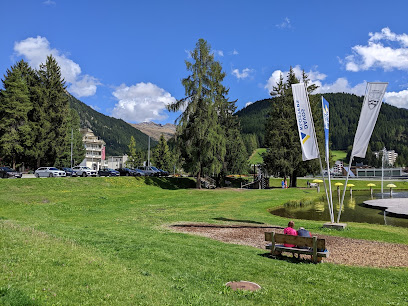
Hotel Schatzalp - Davos
Discover Hotel Schatzalp in Davos, Switzerland - a perfect blend of history, nature, and luxury in the heart of the Swiss Alps.
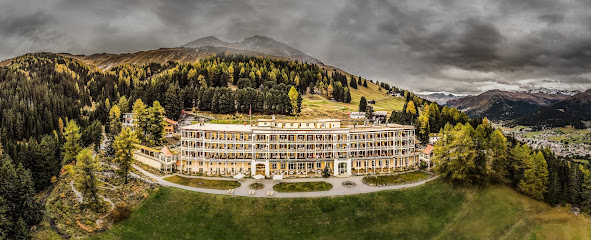
AlpenGold Hotel
Experience unparalleled luxury and stunning mountain views at the five-star AlpenGold Hotel in Davos, Switzerland, your perfect alpine retreat.
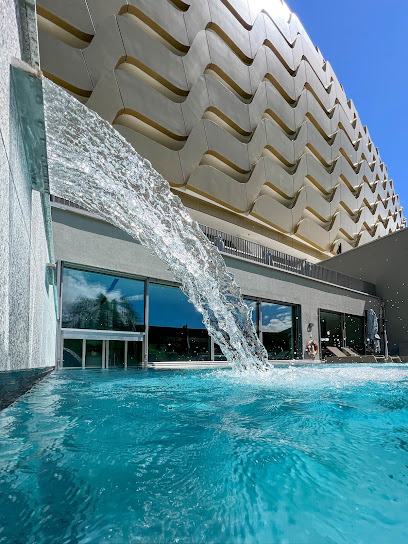
Precise Tale Seehof Davos Hotel
Experience luxury and adventure at the Precise Tale Seehof Davos Hotel, a premier alpine retreat in the heart of Davos, Switzerland.
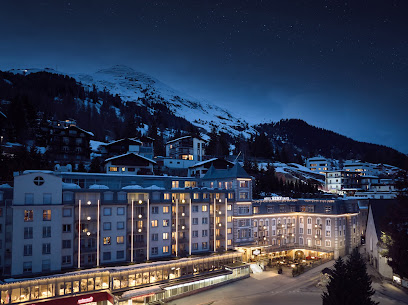
Morosani Schweizerhof
Explore the charm of Davos at Morosani Schweizerhof, where luxury meets breathtaking alpine scenery and exceptional service.
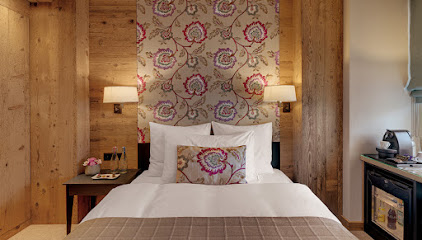
Adventure Park Davos Färich
Explore the exhilarating Adventure Park Davos Färich, where thrilling outdoor activities meet stunning alpine scenery for unforgettable family fun.
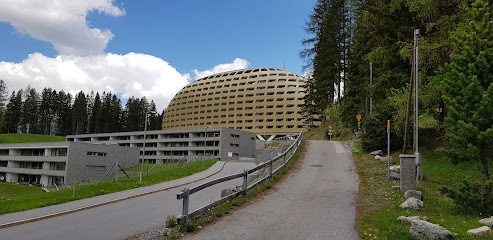
Lake Davos
Discover the enchanting beauty of Lake Davos, where stunning alpine scenery meets a wealth of outdoor adventures and tranquil relaxation.
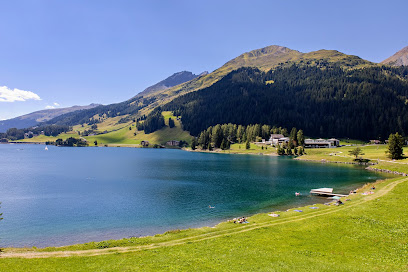
Alpine Inn
Experience the enchanting beauty of the Swiss Alps at Alpine Inn, a cozy hotel in Davos offering stunning views and easy access to outdoor adventures.
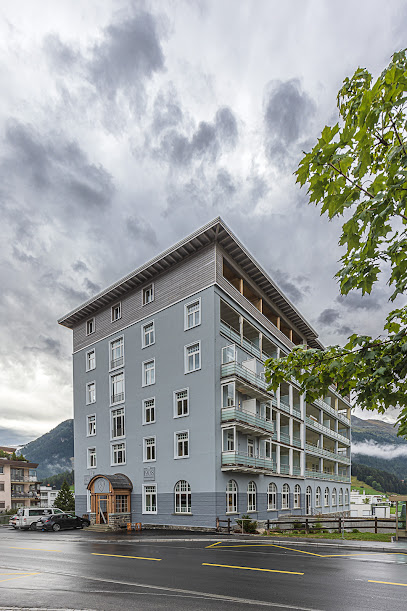
Berggasthaus Dürrboden
Discover the enchanting Berggasthaus Dürrboden in the Swiss Alps, where fine dining meets breathtaking mountain views and unforgettable experiences await.
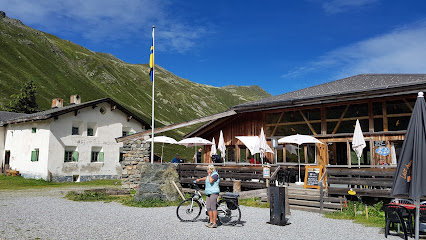
Camping, RinerLodge, Maxon Pavillon
Discover the beauty of Davos at RinerLodge Campground, where outdoor adventures and cozy accommodations meet in the heart of the Swiss Alps.
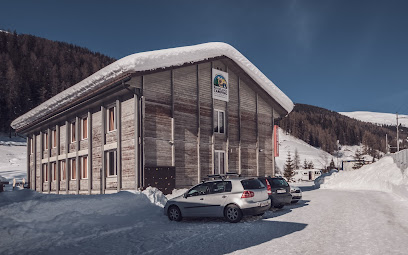
Kirchner Museum Davos
Explore the Kirchner Museum in Davos, a treasure trove of Expressionist art set against the stunning backdrop of the Swiss Alps.
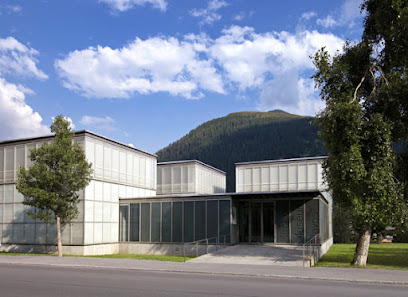
Heaven Davos
Discover Heaven Davos: where gourmet pizzas, kebabs, and stunning mountain views create unforgettable dining experiences in the Swiss Alps.
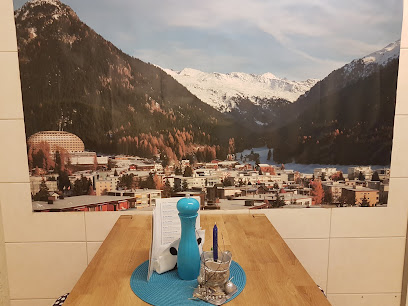
Waldhotel Davos
Experience luxury and tranquility at Waldhotel Davos, your ultimate wellness retreat in the stunning Swiss Alps, ideal for relaxation and adventure.
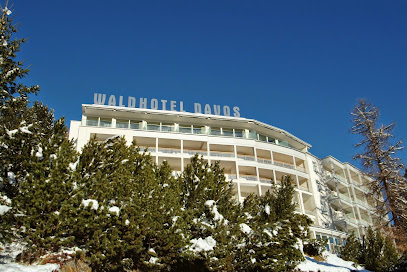
Tijuana Bar
Discover the lively atmosphere of Tijuana Bar in Davos, where vibrant nightlife meets a diverse drink selection in the heart of the Swiss Alps.
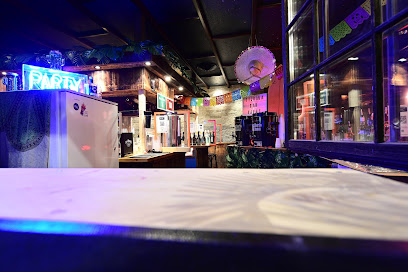
Unmissable attractions to see
Swiss National Park
Discover the breathtaking landscapes and diverse wildlife of the Swiss National Park, a UNESCO Biosphere Reserve in the heart of the Swiss Alps.
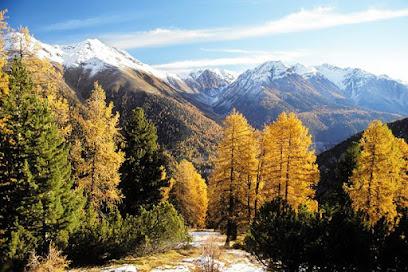
Caumasee
Experience the serene beauty of Caumasee Lake in Flims, Switzerland—a stunning alpine retreat with turquoise waters and breathtaking landscapes.
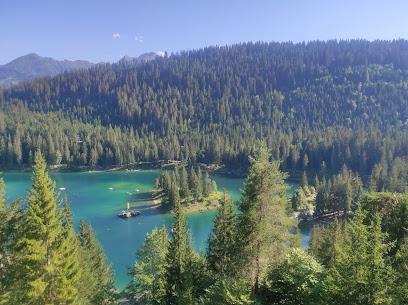
Eichhörnliweg Arosa
Eichhörnliweg Arosa: A family-friendly hiking trail in the Swiss Alps, combining nature, adventure, and unforgettable moments.
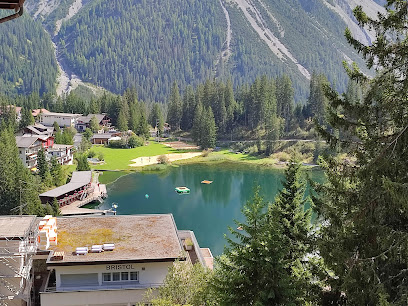
Hotel Schatzalp - Davos
Discover the enchanting Hotel Schatzalp in Davos, where breathtaking alpine views, rich history, and luxurious amenities blend seamlessly for an unforgettable getaway.
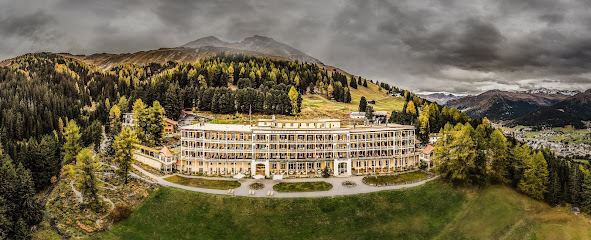
Walserhuus Sertig
Discover the perfect blend of gourmet dining and hiking adventures at Walserhuus Sertig in Davos Clavadel, Switzerland.
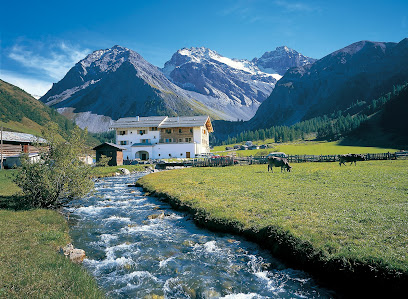
Madrisa Land
Discover the thrill of Madrisa Land, a scenic amusement park in the Swiss Alps offering adventure playgrounds, hiking trails, and family fun for all ages.
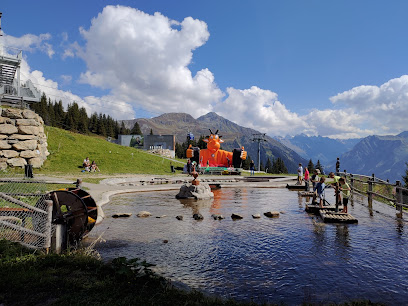
Bernina Pass
Explore the stunning Bernina Pass in the Swiss Alps, a breathtaking mountain pass offering scenic views, adventure, and cultural heritage.
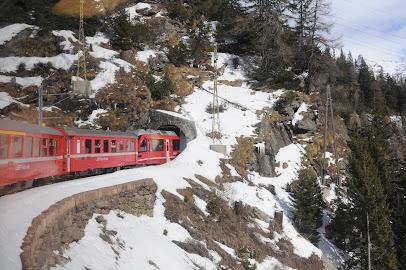
Rheinschlucht
Explore the stunning Rheinschlucht, Switzerland's Grand Canyon, with breathtaking views, hiking trails, and rich geological history.
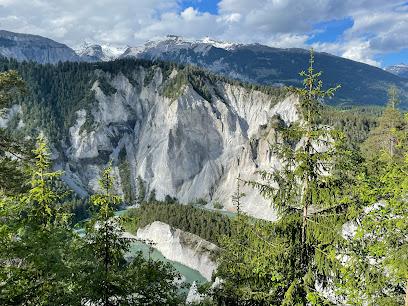
Air-Davos Paragliding
Experience the thrill of paragliding over the breathtaking Swiss Alps with Air-Davos Paragliding, a must-visit adventure in Davos.
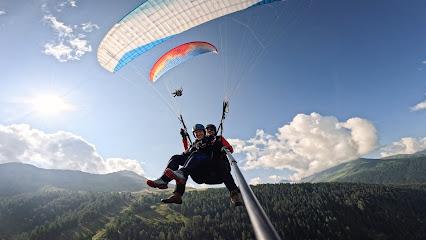
Lake St Moritz
Explore Lake St Moritz, a stunning alpine lake offering breathtaking views, outdoor adventures, and serene relaxation in the heart of Switzerland.
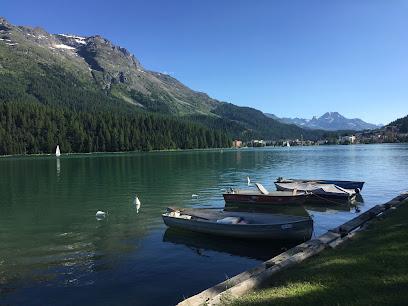
Muottas Muragl
Discover the breathtaking views and exhilarating adventures at Muottas Muragl, a stunning mountain peak in the Swiss Alps, perfect for outdoor enthusiasts.
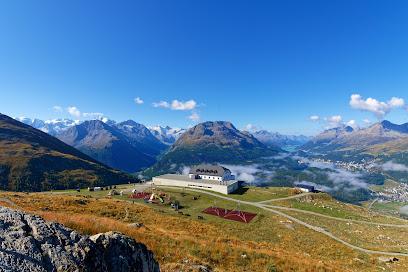
Bündner Kunstmuseum
Explore the rich artistic heritage of the Grisons region at the Bündner Kunstmuseum in Chur, featuring an extensive collection from Swiss artists.
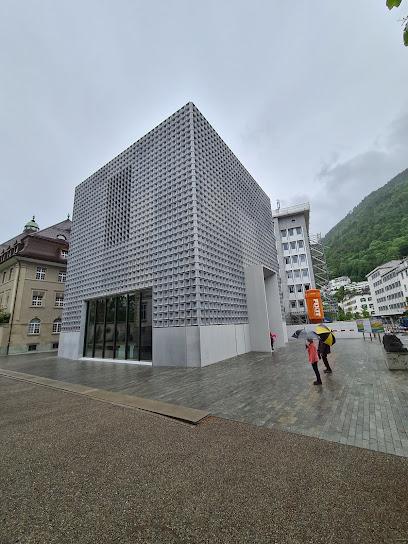
Joyride Paragliding
Experience the thrill of paragliding in Davos, soaring over breathtaking Swiss landscapes with Joyride Paragliding.
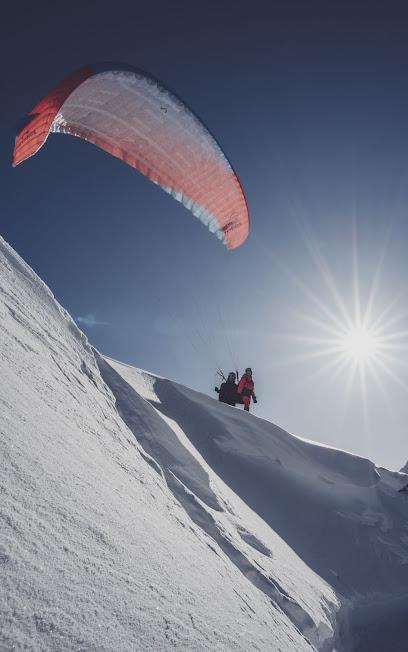
Kathedrale St. Mariä Himmelfahrt
Discover the stunning Kathedrale St. Mariä Himmelfahrt in Chur, a masterpiece of architecture and a serene place of worship amidst breathtaking Swiss landscapes.
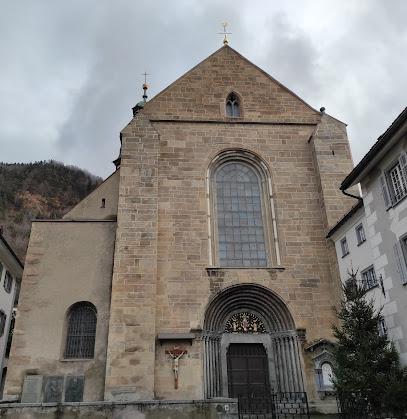
Schiefer Turm St. Moritz
Discover the historical Schiefer Turm in St. Moritz - a leaning tower with incredible views and rich Swiss heritage.
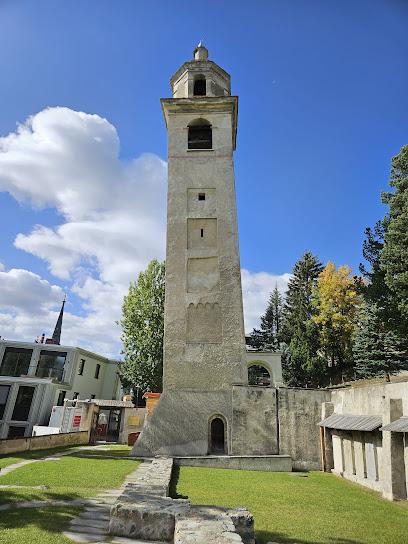
Essential places to dine
Schneider's Restaurant
Experience authentic Swiss flavors and delightful bakery treats at Schneider's Restaurant in Davos - a must-visit for every traveler.
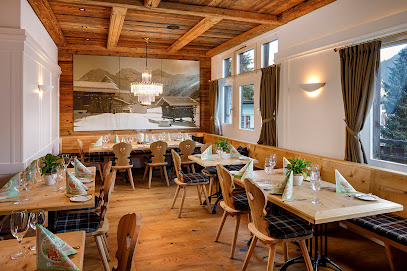
Da Elio, Restaurant und Pizzeria
Experience authentic Italian cuisine at Da Elio in Davos – where every dish tells a story and every visit feels like home.
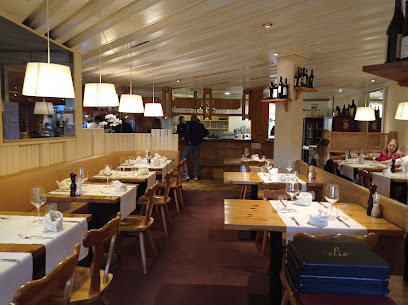
Kessler's Kulm Hotel / Restaurant
Experience luxury and nature at Kessler's Kulm Hotel & Restaurant—your gateway to Swiss cuisine and outdoor adventures in beautiful Davos.
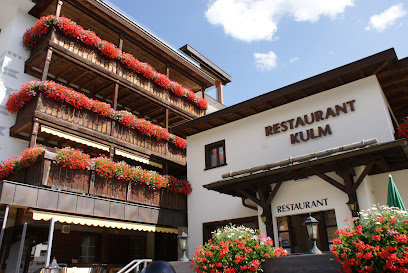
Grischa – DAS Hotel Davos
Experience exquisite dining at Grischa – DAS Hotel Davos with diverse cuisines from Chinese to European in an elegant alpine setting.

Migros-Restaurant - Davos Symondpark
Discover affordable culinary delights at Migros-Restaurant in Davos Symondpark – where fresh ingredients meet inviting atmosphere.
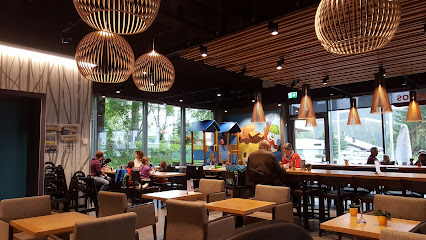
Restaurant Bergführer
Experience authentic Swiss cuisine surrounded by breathtaking alpine views at Restaurant Bergführer in Sertig-Dörfli.
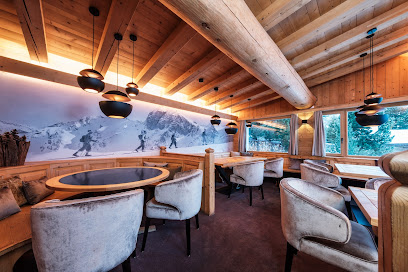
Der Pate
Experience authentic Italian cuisine at Der Pate in Davos; indulge in mouthwatering pizzas and classic dishes amidst breathtaking alpine scenery.
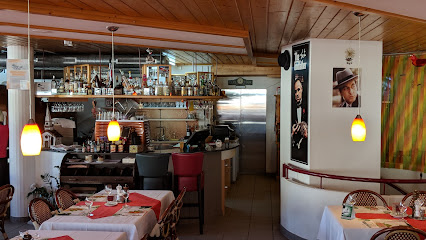
Ristorante Pizzeria Padrino
Experience authentic Italian cuisine at Ristorante Pizzeria Padrino in Davos – where every pizza tells a story amidst breathtaking Alpine views.
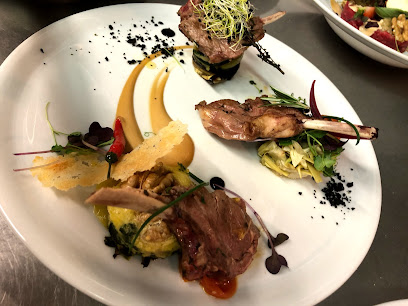
Schatzalp Panorama Restaurant
Experience exquisite Swiss cuisine amidst breathtaking Alpine views at Schatzalp Panorama Restaurant in Davos.
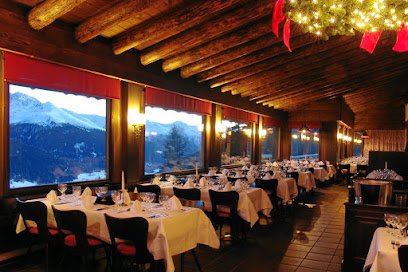
Golden Dragon China Restaurant
Experience authentic Chinese flavors at Golden Dragon Restaurant in Davos - where tradition meets exquisite taste.
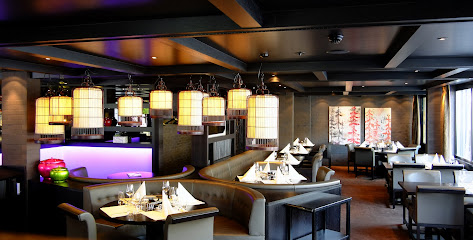
Coop Restaurant Davos
Experience authentic Swiss flavors at Coop Restaurant Davos – where local ingredients meet alpine charm.
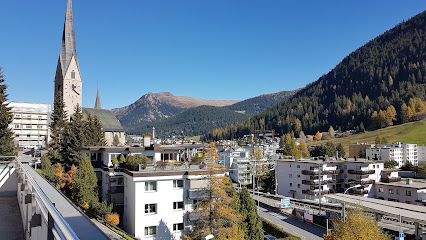
Restaurant Bräma
Experience authentic Swiss cuisine at Restaurant Bräma in Davos - where tradition meets modern culinary excellence amidst stunning mountain views.
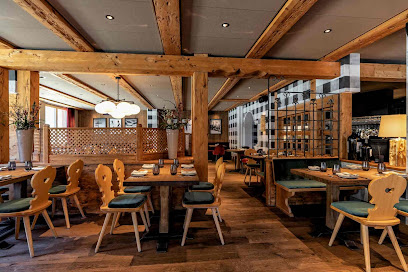
Restaurant ISLEN - Erlesener Genuss
Experience exquisite Swiss and Italian flavors at Restaurant ISLEN in Davos Platz - where every meal is a celebration.
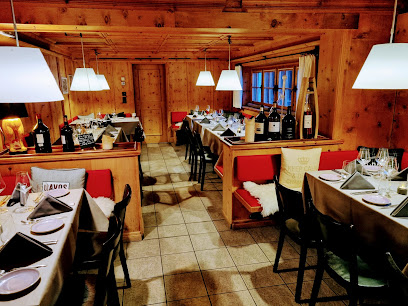
La Carretta
Experience authentic Italian cuisine at La Carretta in Davos – where every dish is crafted with love and passion amidst stunning Alpine scenery.
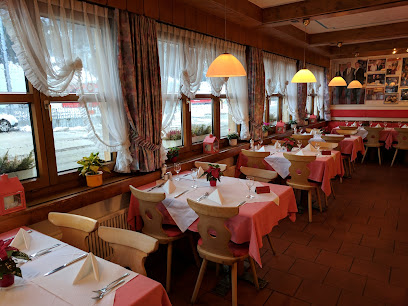
Restaurant Scala
Discover Restaurant Scala in Davos – where Mediterranean flair meets Swiss tradition in a cozy dining atmosphere.
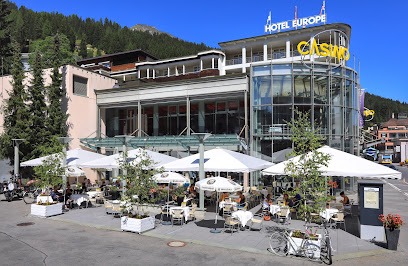
Markets, malls and hidden boutiques
Fullmoons Bergsport
Explore the great outdoors with top-notch gear and expert guidance at Fullmoons Bergsport in Davos, Switzerland, your adventure begins here.
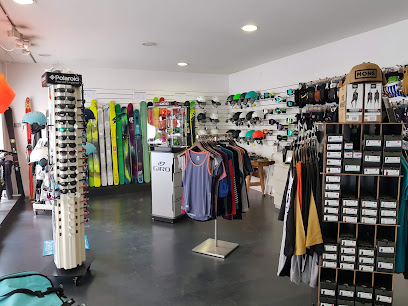
Schuler Books Ltd.
Discover a literary oasis at Schuler Books Ltd. in Davos Platz, where every title tells a story and every visit is a new adventure.
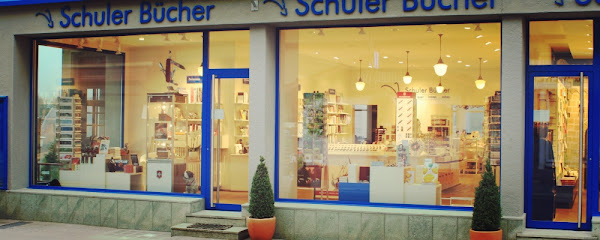
H&M
Explore H&M in Davos for trendy, affordable clothing for the entire family, perfect for your alpine adventure.
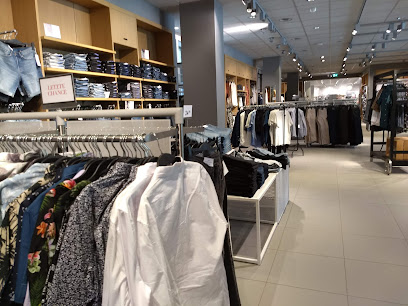
milk & more GmbH
Explore the best of Swiss gifts and dairy delights at milk & more GmbH in Davos - a treasure trove for tourists seeking local flavors.
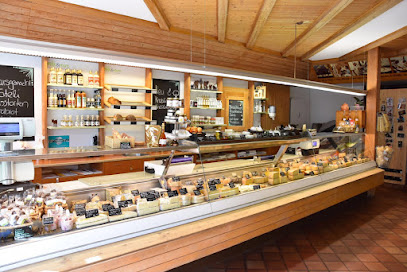
FREITAG Store Davos
Discover the eco-friendly elegance of FREITAG Store Davos, where innovative design meets sustainability in every unique bag.
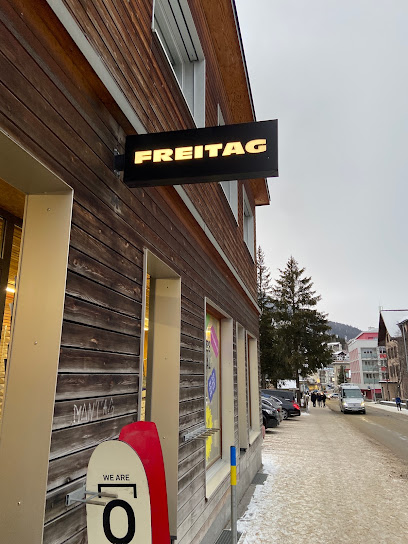
Schneider's Rätia
Discover Schneider's Rätia in Davos, where Swiss confectionery delights await with every delicious bite amidst a charming bakery atmosphere.
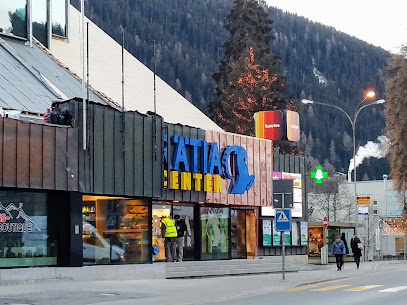
Tabac & Souvenir Shop, Inhaber Remo Gross
Discover the charm of Davos at Tabac & Souvenir Shop, your destination for fine tobacco and unique Swiss souvenirs.
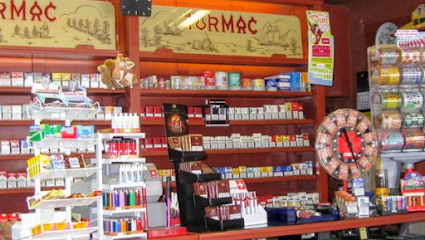
Vreni's Teekanne Davos
Discover a world of exquisite teas at Vreni's Teekanne in Davos, where every sip is a celebration of flavor and tradition.
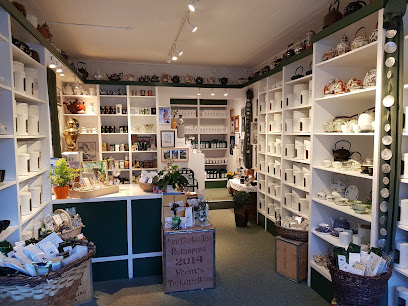
M-Outlet - Davos Outlet
Explore M-Outlet Davos for unbeatable discounts on quality fashion brands in a breathtaking Alpine setting.
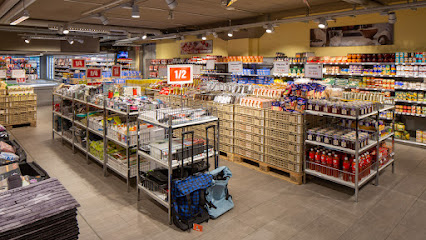
Thöny Mode AG Davos
Discover elegant fashion at Thöny Mode AG in Davos, where style meets Swiss charm in a boutique shopping experience.
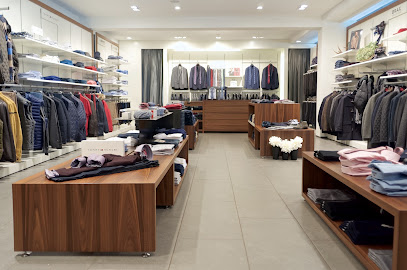
1560 Fashion.Point
Shop in style at 1560 Fashion.Point, the premier clothing destination in Davos, offering a chic selection for every fashion enthusiast.
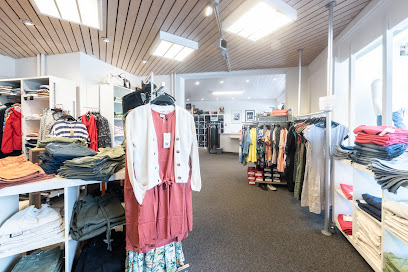
Fullmoons Go Vertical Bergsport Outlet
Explore the Swiss Alps with top-tier gear from Fullmoons Go Vertical Bergsport Outlet in Davos - your adventure starts here!
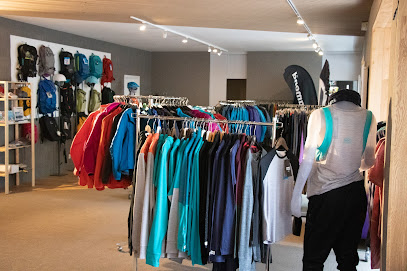
Swiss Alp Fantasy
Explore Swiss Alp Fantasy in Davos for unique souvenirs that embody the spirit of the Swiss Alps, perfect for every traveler seeking a piece of Switzerland.
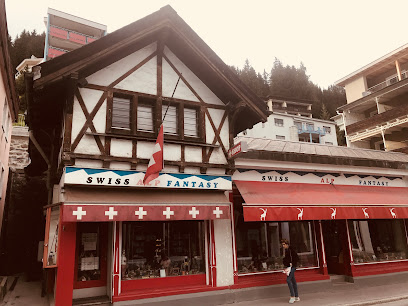
Lilos Second Hand Shop
Explore the charm of sustainable fashion at Lilos Second Hand Shop, a delightful treasure trove of pre-loved clothing in Davos.
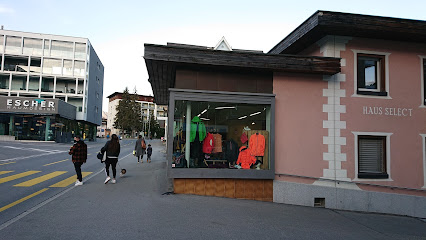
Swatch
Explore the vibrant world of Swatch in Davos, where innovative designs meet Swiss craftsmanship in a unique watch store experience.
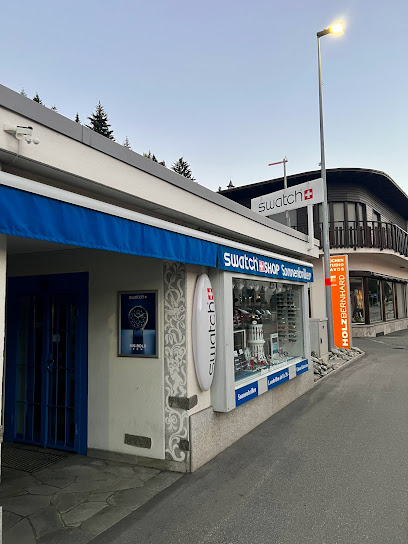
Essential bars & hidden hideouts
EX Bar
Discover the lively atmosphere and delightful drinks at EX Bar in Davos, a perfect retreat for tourists seeking relaxation and fun.
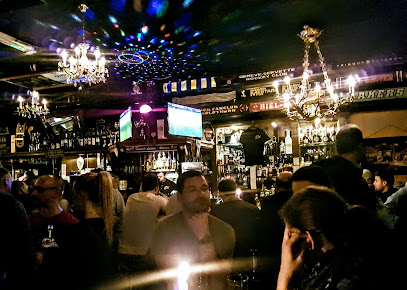
Lokal
Experience the authentic taste of Switzerland at Lokal, a charming restaurant in Davos, where quality meets alpine hospitality.
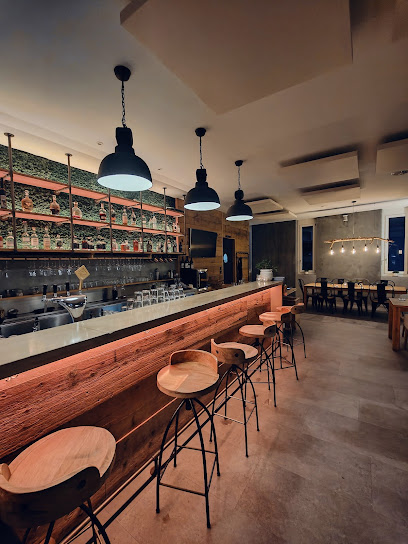
Mountain's Akt Bar
Experience the vibrant atmosphere of Mountain's Akt Bar in Davos, where delicious drinks meet stunning alpine views for an unforgettable experience.
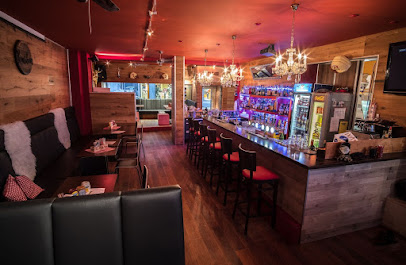
JODY'S Restaurant & Bar
Experience the fusion of local flavor and modern dining at JODY'S Restaurant & Bar in Davos, Switzerland.
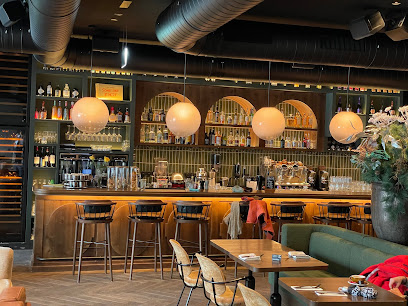
Chämi Bar
Discover the vibrant atmosphere at Chämi Bar in Davos, where great drinks and warm camaraderie await you.
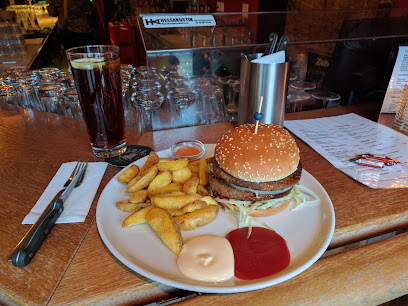
Tijuana Bar
Experience the vibrant nightlife at Tijuana Bar in Davos, where great drinks and lively atmosphere come together for an unforgettable evening.
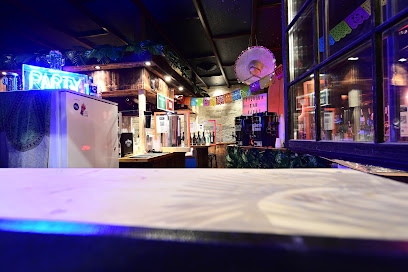
Pulsa Restaurant
Discover the delightful flavors of Pulsa Restaurant in Davos, where a vibrant bar meets a sophisticated dining experience.
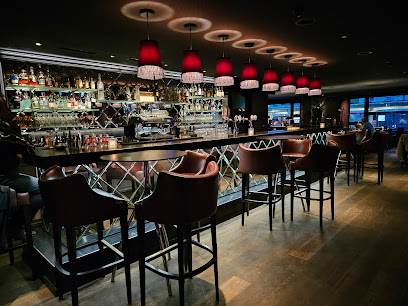
Bar La Onda
Experience the lively nightlife of Davos Platz at Bar La Onda, where delicious gastropub cuisine meets unforgettable live music.
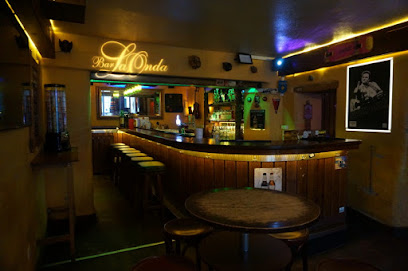
Caprizzi Sportsbar
Caprizzi Sportsbar in Davos offers an exhilarating sports atmosphere, delicious cuisine, and a perfect gathering spot for fans and friends alike.
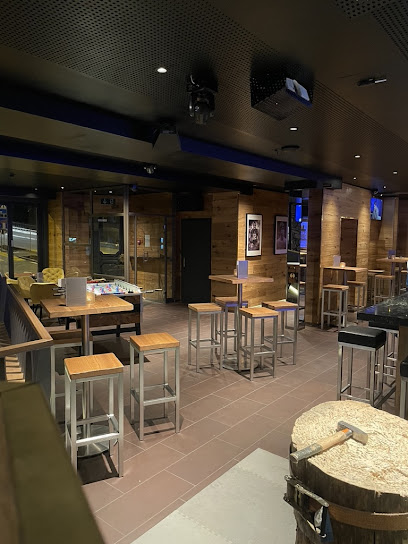
Ochsen 2 Bar
Discover the lively atmosphere and extensive drink selection at Ochsen 2 Bar in Davos, perfect for unwinding after alpine adventures.
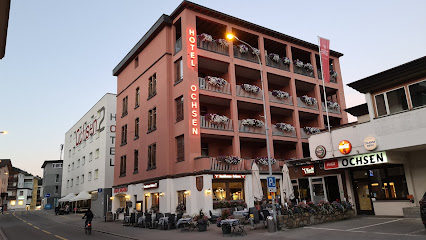
Schwarzseeälpli-Bar
Experience the essence of Swiss dining at Schwarzseeälpli-Bar, where grilled flavors meet breathtaking alpine views in Davos.
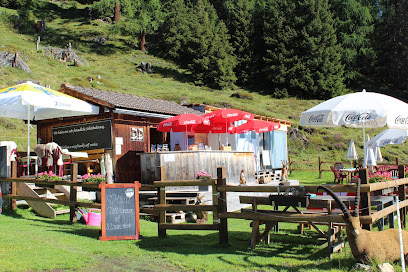
Sonas
Discover Sonas in Davos: a cozy bar with exceptional drinks, a welcoming atmosphere, and vibrant nightlife perfect for tourists.
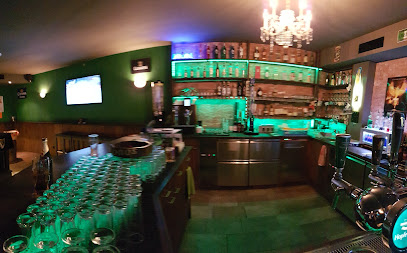
Montana Bar / Mahalo GmbH
Discover the vibrant Montana Bar in Davos Dorf, where lively atmosphere, exquisite cocktails, and local charm come together for an unforgettable night.
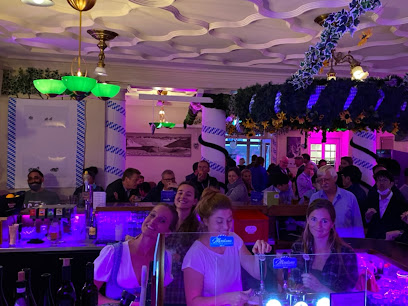
C-Bar
Experience the vibrant atmosphere of C-Bar in Davos, where delightful drinks meet a cozy ambiance, perfect for unwinding after a day of Alpine adventures.
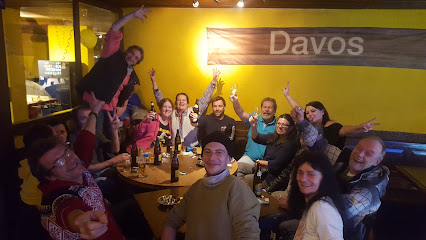
Local Phrases
-
- HelloGuten Tag
[Gooten Tahg] - GoodbyeAuf Wiedersehen
[Owf Vee-der-zay-en] - YesJa
[Yah] - NoNein
[Nine] - Please/You're welcomeBitte
[Bee-teh] - Thank youDanke
[Dahn-keh] - Excuse me/SorryEntschuldigung
[Ent-shool-dee-goong] - How are you?Wie geht es Ihnen?
[Vee geht es Ee-nen?] - Fine. And you?Gut. Und Ihnen?
[Goot. Oond Ee-nen?] - Do you speak English?Sprechen Sie Englisch?
[Spre-khen Zee Eng-leesh?] - I don't understandIch verstehe nicht
[Eekh fer-shtay-eh neekt]
- HelloGuten Tag
-
- I'd like to see the menu, pleaseIch möchte bitte die Speisekarte sehen
[Eekh merkh-teh bee-teh dee Shpy-ze-kar-teh zeh-en] - I don't eat meatIch esse kein Fleisch
[Eekh ess-eh kine Fly-sh] - Cheers!Prost!
[Prohst] - I would like to pay, pleaseIch möchte bitte bezahlen
[Eekh merkh-teh bee-teh beh-tzah-len]
- I'd like to see the menu, pleaseIch möchte bitte die Speisekarte sehen
-
- Help!Hilfe!
[Hil-feh] - Go away!Gehen Sie weg!
[Gay-en Zee vehg] - Call the Police!Rufen Sie die Polizei!
[Roo-fen Zee dee Poh-lee-tsy] - Call a doctor!Rufen Sie einen Arzt!
[Roo-fen Zee Ee-nen Arts] - I'm lostIch bin verloren
[Eekh been fer-loh-ren] - I'm illIch bin krank
[Eekh been krank]
- Help!Hilfe!
-
- I'd like to buy...Ich möchte...kaufen
[Eekh merkh-teh...kow-fen] - I'm just lookingIch schaue nur
[Eekh shou-eh noor] - How much is it?Wie viel kostet es?
[Vee feel koh-stet es] - That's too expensiveDas ist zu teuer
[Dahs ist tso toy-er] - Can you lower the price?Könnten Sie den Preis senken?
[Kern-ten Zee den Preis zehn-ken]
- I'd like to buy...Ich möchte...kaufen
-
- What time is it?Wie spät ist es?
[Vee shpayt ist es] - It's one o'clockEs ist ein Uhr
[Es ist ine oor] - Half past (10)Halb (zehn)
[Halb (tsane)] - MorningMorgen
[Mor-gen] - AfternoonNachmittag
[Nahkh-mit-tahk] - EveningAbend
[Ah-bent] - YesterdayGestern
[Gehs-tern] - TodayHeute
[Hoy-teh] - TomorrowMorgen
[Mor-gen] - 1Eins
[Ine-z] - 2Zwei
[Tzvey] - 3Drei
[Dry] - 4Vier
[Feer] - 5Fünf
[Foonf] - 6Sechs
[Zex] - 7Sieben
[Zee-ben] - 8Acht
[Akh-t] - 9Neun
[Noy-n] - 10Zehn
[Tzane]
- What time is it?Wie spät ist es?
-
- Where's a/the...?Wo ist ein/der...?
[Vo ist ine/dehr] - What's the address?Wie lautet die Adresse?
[Vee lowt-et dee Ah-dre-seh] - Can you show me (on the map)?Können Sie mir das zeigen (auf der Karte)?
[Kern-en Zee meer dahs tsey-gen (owf dehr Kar-teh)] - When's the next (bus)?Wann kommt der nächste (Bus)?
[Vahn kohmt dehr nerkh-steh (Boos)] - A ticket (to ....)Eine Fahrkarte (nach ...)
[Ine-eh Fahr-kar-teh (nahkh)]
- Where's a/the...?Wo ist ein/der...?
History of Davos
-
Davos, located in the Swiss Alps, has a history that stretches back to the early Middle Ages. The first documented mention of the area dates back to 1213, when the Walser settlers, originally from the Valais region, migrated to the high valley. These early settlers were drawn to the region's fertile land and alpine pastures, laying the foundation for the vibrant community that would flourish in the centuries to come.
-
Davos' reputation as a health resort began in the mid-19th century. German physician Alexander Spengler recognized the therapeutic benefits of the region's high altitude and clean air for treating tuberculosis. By the 1860s, Davos became a popular destination for patients seeking cures for respiratory ailments. This led to the construction of sanatoriums and medical facilities, attracting visitors from across Europe and significantly boosting the local economy.
-
Davos' allure extended beyond its health benefits to the realm of literature. The German novelist Thomas Mann drew inspiration from his wife's stay at a Davos sanatorium for his acclaimed novel, 'The Magic Mountain,' published in 1924. The book, set in a fictional sanatorium in the Swiss Alps, captures the essence of Davos' atmosphere and the experiences of those who sought healing in its serene environment. Mann's work further cemented Davos' place in cultural history.
-
The late 19th and early 20th centuries saw Davos transform into a premier winter sports destination. The introduction of the first bobsleigh run in 1882 and the establishment of the Davos Hockey Club in 1921 marked the beginning of the town's association with winter sports. The annual Spengler Cup, first held in 1923, is one of the oldest international ice hockey tournaments in the world. These developments attracted tourists and sports enthusiasts, contributing to Davos' growing fame as a winter paradise.
-
Since 1971, Davos has been synonymous with the World Economic Forum (WEF), an annual meeting that brings together global leaders from politics, business, and academia. Founded by Professor Klaus Schwab, the WEF has transformed Davos into a hub for discussing global economic issues and shaping international policies. Each January, the town hosts influential figures who engage in high-level discussions, making Davos a focal point for global decision-making.
-
Today, Davos seamlessly blends its rich historical heritage with modern innovation. The town remains a sought-after destination for health tourism, winter sports, and international conferences. Its diverse cultural offerings, including museums, galleries, and music festivals, reflect a vibrant community that honors its past while embracing the future. Davos continues to captivate visitors with its unique combination of natural beauty, historical significance, and contemporary relevance.
Davos Essentials
-
Davos is accessible via several modes of transportation. The closest major international airport is Zurich Airport, approximately 150 kilometers away. From Zurich, you can take a direct train to Davos, which typically takes around 2.5 hours. Alternatively, you can rent a car and drive to Davos, which takes roughly 2 hours on well-maintained roads. Buses also operate between major Swiss cities and Davos, offering another viable option for travelers.
-
Davos has an efficient public transportation system including buses and trains, which makes it easy to get around. The Davos Platz and Davos Dorf train stations connect the town to other parts of Switzerland. Local buses run frequently and cover most areas within Davos. Taxis are available but can be quite expensive. For a more eco-friendly and scenic option, consider renting a bicycle during the warmer months.
-
The official currency in Davos, as in the rest of Switzerland, is the Swiss Franc (CHF). Credit and debit cards are widely accepted in hotels, restaurants, and shops. However, it's advisable to carry some cash for smaller establishments and local markets. ATMs are plentiful, and currency exchange services are available at banks and some hotels.
-
Davos is generally a very safe destination for tourists. Crime rates are low, and violent crime is rare. However, as with any travel destination, it's wise to take standard precautions. Avoid isolated areas at night and keep an eye on your belongings, especially in crowded places. There are no specific high-crime areas targeting tourists, but always stay vigilant.
-
In case of an emergency, dial 112 for immediate assistance. This number will connect you to police, medical, and fire services. Davos has a well-equipped hospital and several medical clinics for non-emergency health issues. Pharmacies are also available for minor health concerns. It's advisable to have travel insurance that covers medical emergencies.
-
Fashion: Do dress warmly and in layers, as weather can change quickly in the mountains. Avoid overly casual attire in upscale restaurants. Religion: Do respect local customs, although Davos is not particularly religious. Public Transport: Do validate your ticket before boarding trains and buses. Don't be loud or disruptive. Greetings: Do greet people with a handshake and maintain eye contact. Eating & Drinking: Do try local dishes like fondue and raclette. Don't forget to say 'thank you' when served.
-
To experience Davos like a local, visit the weekly farmers' market where you can buy fresh produce and local specialties. Engage with locals, who are generally friendly and willing to share insights about the town. Don't miss the opportunity to take a hike or bike ride on the numerous trails that offer stunning views of the Alps. For a unique experience, attend one of the many events hosted in Davos, such as the World Economic Forum or the annual Spengler Cup ice hockey tournament.
Trending Landmark in Davos
Nearby Cities to Davos
-
Things To Do in Arosa
-
Things To Do in St. Moritz
-
Things To Do in Balzers
-
Things To Do in Triesenberg
-
Things To Do in Vaduz
-
Things To Do in Schaan
-
Things To Do in St. Anton am Arlberg
-
Things To Do in Eschen
-
Things To Do in Mauren
-
Things To Do in Gamprin
-
Things To Do in Schellenberg
-
Things To Do in Ruggell
-
Things To Do in Dornbirn
-
Things To Do in Bregenz
-
Things To Do in Locarno













